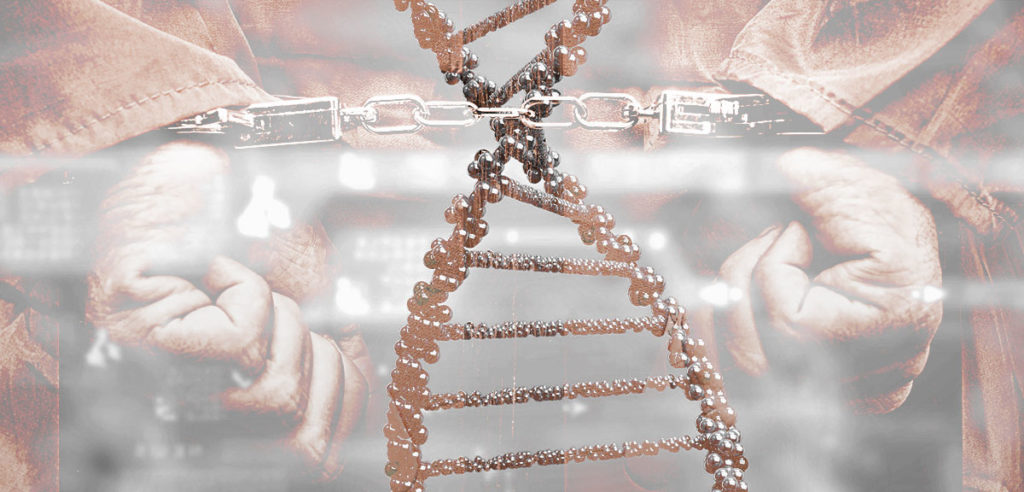Last year’s International Symposium of Human Identification (ISHI) covered a span of topics during various workshops, sessions, and poster presentations. Topics ranged from investigative genetic genealogy (IGG) to customary updates about CODIS and DNA testing standards to mobilizing DNA analysis labs. However, one topic particularly stood out to attendees—Ashley Spence’s powerful testimony on pursuing justice for victims.
Continue reading “Pursuing Justice For Victims: DNA Forensics”codis
Familial Searching Solves Cold Cases—At What Cost?
A cold case that had stumped investigators for nearly 41 years was solved last month. The 1976 sexual assault and murder of Karen Klass, ex-wife of Righteous Brother’s singer Bill Medley, shocked her Hermosa Beach, CA community and captured the public interest. Failing to make any arrests for decades, detectives were able to use DNA evidence to eliminate suspects in 1999 but were unable to find a database match. In 2011, investigators decided to try a new technique called a familial search and, after a few attempts, successfully identified the perpetrator.

Familial searching (FS) involves taking a DNA profile obtained from a crime scene and comparing it to profiles in CODIS and other databases to identify male relatives. The DNA profile of an immediate family member, such as a sibling, parent or child, can provide a match that generates new leads for law enforcement. Detectives can then collect additional evidence to narrow down that new pool of individuals to a single suspect.
Last May I wrote a blog featuring a Q & A about FS provided by Mr. Rockne Harmon, a respected member of the forensic community and passionate advocate for FS. Supporters, like Harmon, and opponents agree that this method of obtaining matches to DNA evidence has demonstrated scientific precision and successful outcomes, as in the Klass case. However, it is still considered controversial and most states have not implemented specific policies regarding the application of FS to criminal investigations. So why isn’t the use of FS more widespread?
Continue reading “Familial Searching Solves Cold Cases—At What Cost?”Familial DNA Searching for Criminal Forensics: Q&A
When DNA evidence is collected at a crime scene, submitting the sample for a search within a DNA database does not always identify a profile match. There is a way to extend that search and generate leads, called familial searching (FS). FS is used to identify close biological relatives of an unidentified DNA profile obtained as evidence. The basic premise is that DNA profiles of immediate family members, such as siblings, parents, or children, are likely to have more alleles in common than unrelated individuals. These familial profile matches can generate new investigative leads for law enforcement.
Currently, a few states are using FS under their state database laws, although none explicitly permit FS. Many agencies have yet to adopt policies related to FS, even though it has been found to be as effective as CODIS for identifying sources of evidence. The absence of clear ethical guidelines and policy regarding how to properly utilize FS prevents many local and state jurisdictions from adopting this investigational tool.
In order to address concerns and existing policies related to FS and to guide policy decisions by agencies implementing FS, the National Institute of Justice (NIJ) issued the report Familial DNA Searching: Current Approaches in January 2015. The goal of the report was to provide information to policy makers, law enforcement officials, forensic laboratory practitioners, and legal professionals about how FS is being applied within the criminal justice realm.

Answers to the following questions about FS were provided by Mr. Rockne Harmon, a retired former prosecutor and member of the team that produced the report for the National Institute of Justice.
What is familial DNA searching?
Familial searching (FS) is an additional search of a DNA profile in a law enforcement DNA database that is conducted after a routine search fails to identify any profile matches. The FS process attempts to provide investigative leads to agencies engaged in the pursuit of justice by identifying a close biological relative of the source of the unknown forensic profile obtained from crime scene evidence.
Continue reading “Familial DNA Searching for Criminal Forensics: Q&A”